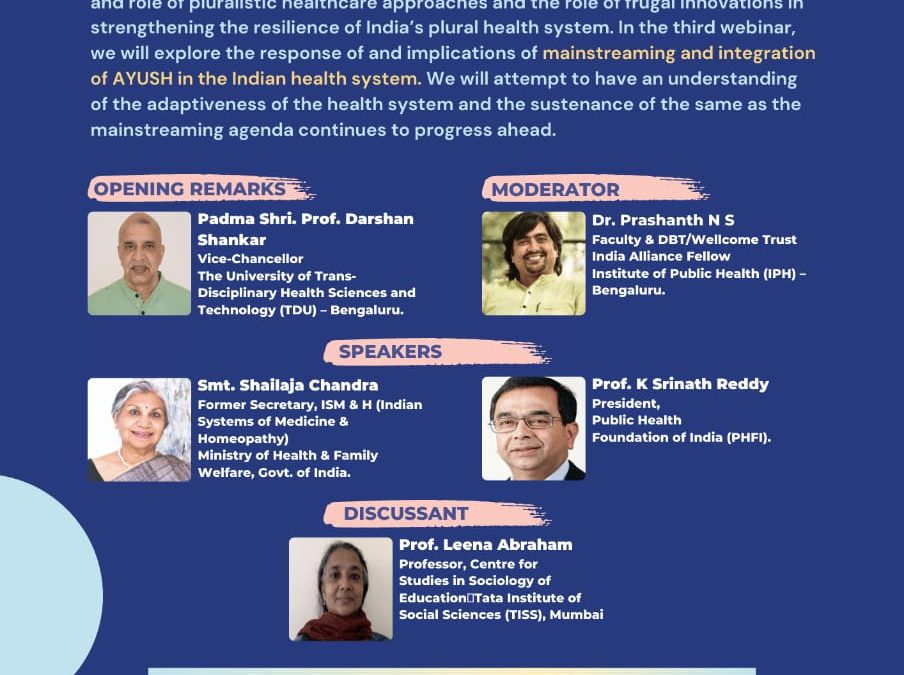
Strengthening the Resilience of India’s Plural Health System: Lessons from the COVID-19 crisis

Time
11.00 AM – 12.30 PM
Date
09-February-2021
Title:
“Strengthening the Resilience of India’s Plural Health System: Lessons from the COVID19 Crisis”
Speakers:
- Smt. Shailaja Chandra Former Secretary, ISM & H (Indian Systems of Medicine & Homeopathy) Ministry of Health & Family Welfare, Govt. of India.
- Prof. K Srinath Reddy President, Public Health Foundation of India (PHFI).
Opening Remarks:
- Padma Shri. Prof. Darshan Shankar Vice-Chancellor The University of Trans-Disciplinary Health Sciences and Technology (TDU) – Bengaluru.
Discussants:
- Prof. Leena Abraham Professor, Centre for Studies in Sociology of Education Tata Institute of Social Sciences (TISS), Mumbai
Moderator:
- Dr. Prashanth N S Faculty & DBT/Wellcome Trust India Alliance Fellow, Institute of Public Health (IPH) – Bengaluru.












